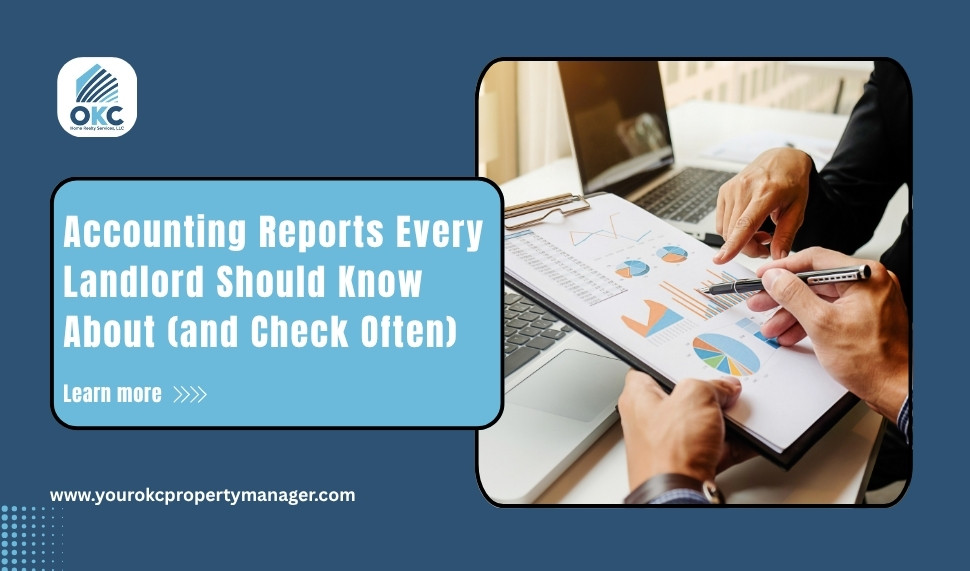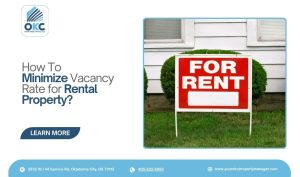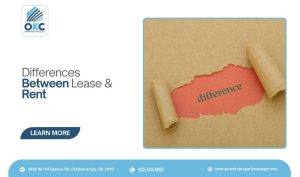Managing rental properties is more than just collecting rent and handling maintenance requests. Behind every successful landlord is a robust accounting system that provides clarity, compliance, and control over their investment. Recent U.S. industry data from 2025 indicates that landlords who regularly review their financial records reduce tax-related errors by up to 25%, leading to significant cost savings and improved profitability. Yet, many property owners overlook the power of regular financial reporting, risking missed opportunities and compliance headaches.
As a property manager in Oklahoma City, I’ve seen firsthand how proper accounting can transform a rental business. Whether you own a single-family home or a portfolio of multifamily units, understanding your numbers is the key to making informed decisions, staying compliant with tax laws, and building long-term wealth. With automated tools and best practices, even busy landlords can keep their finances in top shape.
In this article, with 15+ years of experience, I’ll provide you with the essential accounting reports every landlord should know about and check often. Also, I’ll explain what each report shows, why it matters, and how to use it to your advantage. Plus, share practical tips for simplifying your accounting, avoiding common pitfalls, and making the most of property management software.
Let’s get started!
Why Financial Reporting Matters for Landlords
Financial reporting isn’t just about crunching numbers; it’s about understanding your rental business inside and out. Whether you own one property or a growing portfolio in Oklahoma, regularly checking your accounting reports gives you a strategic advantage and helps you stay compliant, profitable, and prepared.
Due to the following reasons, financial reporting matters:
Gain Clarity on Property Performance
Financial reports offer a clear, data-driven view of how your rental properties are performing. Instead of guessing whether your investments are profitable, you’ll have hard numbers to back up your decisions. Regular reporting helps you spot trends, identify underperforming units, and take action before small issues become big problems.
Make Informed Investment Decisions
With accurate financial data, you can confidently decide when to raise rent, invest in upgrades, or acquire new properties. Reports like the Profit and Loss Statement and Cash Flow Statement reveal which properties are generating the best returns and where you might need to adjust your strategy.
Stay Legally and Financially Compliant
Landlords are required by law to keep accurate records of income and expenses for tax purposes. Incomplete or inaccurate records can lead to incorrect tax filings, missed deductions, and even penalties or fines. Regularly reviewing your accounting reports ensures you’re always prepared for tax season and compliant with regulations.
Essential Accounting Reports for Landlords
Being on top of your rental property’s finances isn’t just smart; it’s essential. Having access to the right accounting reports gives you a clear, organized view of your income, expenses, and overall property performance. These reports help you make data-backed decisions instead of relying on guesswork, giving you the power to manage your investment properties like a professional.
From monitoring profitability to ensuring you’re not missing rent payments, each financial report serves a distinct purpose. Whether you manage one property or an entire portfolio in Oklahoma City, checking these reports regularly can help you stay profitable, avoid cash flow issues, and prepare for tax season without stress.
Let’s go through the key accounting reports every landlord should know about and why they matter.
1. Profit and Loss Statement (Income Statement)
What It Shows
A profit and loss statement (P&L), also known as an income statement, is a financial report that shows a rental property’s revenue, expenses, and net income over a specific period.
The accounting report provides an overview of the rental property’s profitability, detailing its revenue and expenses in different categories, such as rental income (rent payments), maintenance expenses, property taxes, and mortgage interest.
Why It Matters
The P&L statement is your go-to report for measuring profitability. It helps you identify which properties are making money and where costs can be trimmed. It’s also essential for tax filing, as it provides a clear record of deductible expenses and rental income.
2. Balance Sheet
A Balance Sheet provides a snapshot of your property’s financial position at a specific point in time. It can be listed as:
- Assets: Cash, bank accounts, rental income owed, security deposits, property value, furniture, and appliances
- Liabilities: Mortgage debt, unpaid bills, taxes owed, security deposits owed to tenants
- Equity: Your ownership stake in the property
How Landlords Can Use It
The Balance Sheet helps you understand your net worth and financial health. By comparing assets to liabilities, you can assess whether your properties are building equity or accumulating debt. It’s also useful for identifying financial risks and planning for future investments.
3. Rent Roll Report
Overview of Rent Revenue:
The Rent Roll Report details all current tenants, their lease terms, monthly rent amounts, and payment status. It provides a comprehensive view of your rental income stream.
Track Occupancy and Lease Info:
This report helps you monitor occupancy rates, upcoming lease expirations, and potential vacancies. Staying on top of your rent roll ensures you’re maximizing revenue and minimizing downtime between tenants.
4. Accounts Receivable (AR) Aging Report
Here’s a description of why it is important:
Monitor Outstanding Tenant Payments:
The AR Aging Report helps you to track unpaid rent and other tenant charges, organized by how long payments have been overdue. It highlights tenants who are behind on rent and the total amount owed.
Stay Ahead of Late Rent Issues:
By reviewing this report regularly, you can quickly identify and address late payments before they escalate into bigger problems. It’s a vital tool for maintaining healthy cash flow.
5. General Ledger Report
It tells you why general ledger report is important to you:
Complete View of All Transactions:
The General Ledger is the master record of every financial transaction related to your rental properties. It includes all income, expenses, transfers, and adjustments.
Cross-Check for Accuracy:
Landlords use the General Ledger to verify the accuracy of other reports and ensure no transactions are missing or miscategorized. It’s essential for audits and year-end reviews.
6. Cash Flow Statement:
Understand Inflows and Outflows
The Cash Flow Statement shows how much cash is coming in (from rent and other income) and going out (for expenses, mortgage payments, and repairs) over a set period.
Forecast Future Liquidity
By analyzing cash flow, you can predict whether you’ll have enough funds to cover upcoming expenses, plan for major repairs, or set aside reserves for emergencies.
You may Also Read: Rental property cash flow analysis and why it is important
7. Owner Statement (for Property Managers):
Summarize Returns for Owners
If you hire a property manager, the Owner Statement summarizes your property’s financial activity for the period. It includes income, expenses, management fees, and net proceeds.
Show Management Fees and Deductions
This report provides transparency about what you’re paying for property management and how those fees impact your bottom line.
How to Run Accounting Reports
Traditionally, landlords tracked finances with spreadsheets or paper records. Today, property management software like AppFolio, Rentec Direct, Buildium, and others makes it easy to generate detailed accounting reports with just a few clicks.
Here’s how to get started:
- Choose a property management software that fits your needs and budget.
- Connect your bank accounts and set up your properties within the platform.
- Use built-in reporting features to select the report type (P&L, Balance Sheet, Cash Flow, etc.), specify the reporting period, and apply filters as needed.
- Review the generated reports for accuracy and completeness.
- Schedule regular reporting intervals (monthly, quarterly, annually) to stay on top of your finances.
Mistakes to Avoid When Running Accounting Reports
Even the most detailed accounting reports won’t do you any good if they’re built on flawed or incomplete data. As a landlord, it’s easy to overlook small details in the day-to-day hustle, but those oversights can snowball into financial mismanagement, missed tax deductions, or even IRS penalties. Understanding common pitfalls will help you maintain accurate records and make smarter financial decisions.
Here are some frequent mistakes landlords should be aware of:
- Poor income and expense tracking: One of the biggest missteps is not recording income and expenses as they happen. It may seem harmless to wait a few days or weeks to log transactions, but over time, this can lead to major gaps in your financial records.
Incomplete data makes your reports unreliable and makes it much harder to analyze your property’s performance or prepare for tax season. Consistency is key to recording everything promptly and accurately.
- Ignoring seasonal trends: Rental income and property-related expenses often shift with the seasons. For example, you might have higher maintenance costs in the winter or fluctuating occupancy rates in the summer.
So, if you don’t account for these seasonal patterns in your financial reports, you could end up making inaccurate projections or budgeting errors. Recognizing and planning around these trends helps you manage cash flow more effectively and avoid surprises.
- Not reviewing reports regularly: It’s tempting to only look at your reports when tax time rolls around, but that’s a risky move. Waiting too long to review your financials means you could miss errors, lose out on deductions, or fall out of compliance with local regulations.
You must make a habit of checking your reports monthly or quarterly so you can catch issues early, stay organized, and make informed decisions throughout the year.
How Often Should Landlords Review Accounting Reports?
You need to remember that Consistent reviews make better decisions. Staying on top of your rental property finances isn’t just about tax season — it’s about making smart, informed decisions all year long.
Let’s break down how often you should check your accounting reports to stay ahead of issues and maximize profits.
Monthly Reviews for Active Oversight
Reviewing your accounting reports monthly allows you to catch discrepancies early, track income and expenses in real time, and make timely decisions. Monthly reviews are especially important for landlords with multiple properties or frequent tenant turnover.
Quarterly Reports for Strategic Planning
Quarterly reviews help you spot trends, compare performance across properties, and adjust your strategy as needed. They’re also useful for preparing estimated tax payments and planning capital improvements.
Annual Reports for Tax Filing and Long-Term Review
Annual reports are essential for tax filing, year-end reviews, and long-term planning. They provide a comprehensive overview of your property’s financial performance and help you set goals for the coming year.
Tips for Simplifying Your Landlord Accounting
Managing rental property finances doesn’t have to be overwhelming. Whether you own one unit or a growing portfolio, simplifying your accounting process can save time, reduce stress, and help you stay on top of your financial goals.
Here are some practical tips to make landlord accounting more manageable:
Use Property Management Software:
Modern property management software automates rent collection, expense tracking, and financial reporting. Platforms like AppFolio, Rentec Direct, and others are designed specifically for landlords, making accounting easier and more accurate.
Keep Personal and Rental Finances Separate:
Open separate bank accounts and credit cards for your rental business. This ensures that your personal and business finances don’t get mixed up, making tax time easier and helping you stay compliant with local laws.
Work With a Professional Accountant:
A qualified accountant can help you set up your books, maximize deductions, and ensure compliance with tax laws. They can also review your reports for accuracy and provide valuable financial advice.
Final Thoughts on Landlord Accounting Reports
Staying on top of your accounting is one of the most important things you can do as a landlord. Regularly reviewing essential reports like the Profit and Loss Statement, Balance Sheet, and Cash Flow Statement gives you the clarity and confidence to make smart decisions, avoid costly mistakes, and grow your rental business smoothly. With the right tools and best practices, you can simplify your accounting process and focus on what matters most—maximizing your returns and providing great homes for your tenants.
Ready to take control of your rental property finances? The OKC Home Realty Services team is ready to help you making sense of your numbers and maximize your investment. Call us today to learn more about our property management and accounting solutions!
FAQs on Accounting Report for Landlords
What is the most important accounting report for landlords?
The Profit and Loss Statement is often considered the most important, as it shows your property’s profitability over time.
How can I automate my landlord accounting?
Use property management software to automate rent collection, expense tracking, and report generation. This saves time and reduces errors.
Should I keep separate bank accounts for my rentals?
Yes, keeping personal and rental finances separate simplifies bookkeeping and ensures compliance with tax laws.
How often should I review my accounting reports?
Review reports monthly for active oversight, quarterly for strategic planning, and annually for tax filing and long-term review.
What happens if I don’t keep accurate records?
Inaccurate or incomplete records can lead to missed deductions, tax penalties, and poor business decisions.

Author
Scott Nachatilo is an investor, property manager and owner of OKC Home Realty Services – one of the best property management companies in Oklahoma City. His mission is to help landlords and real estate investors to manage their property in Oklahoma.
 (
(









